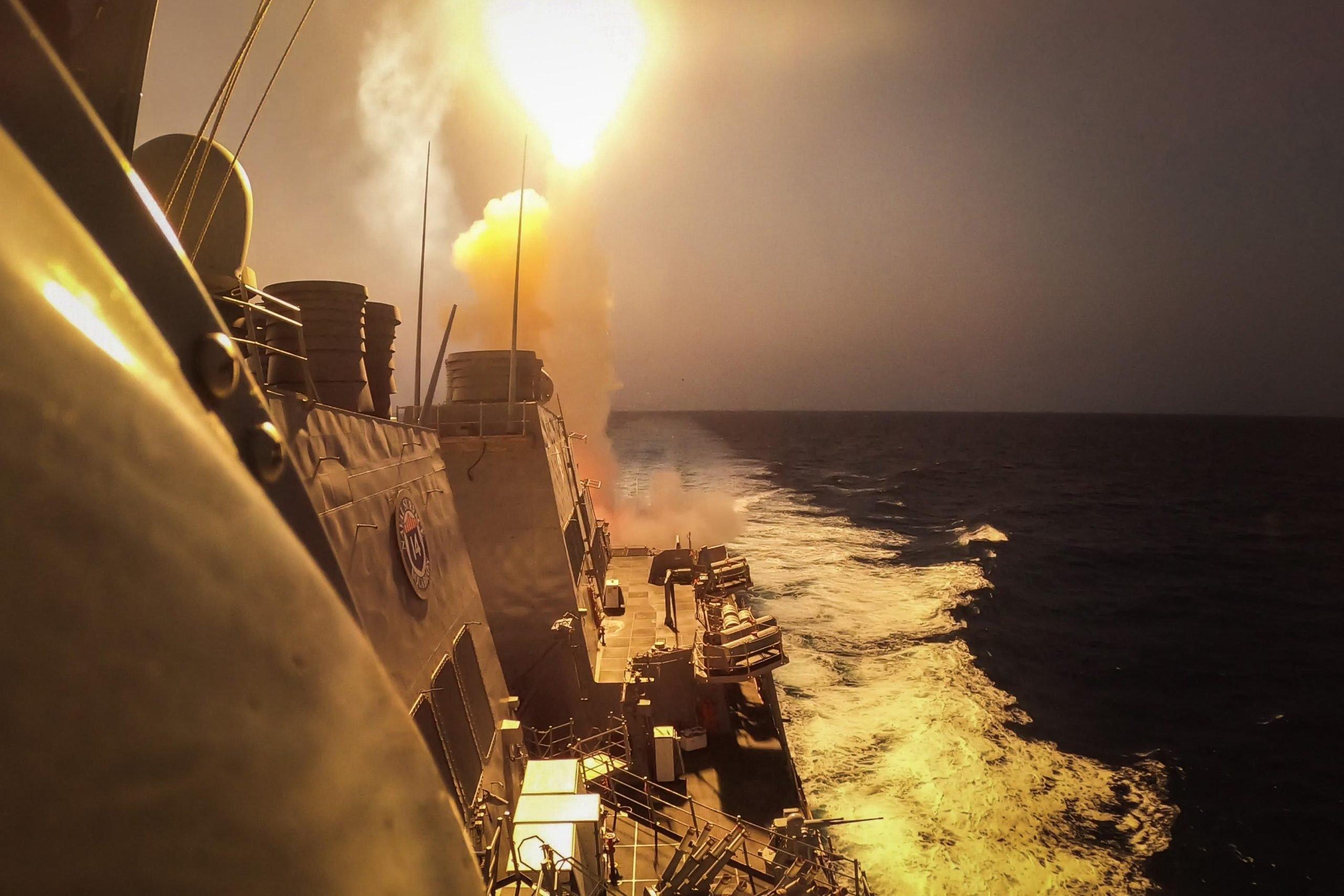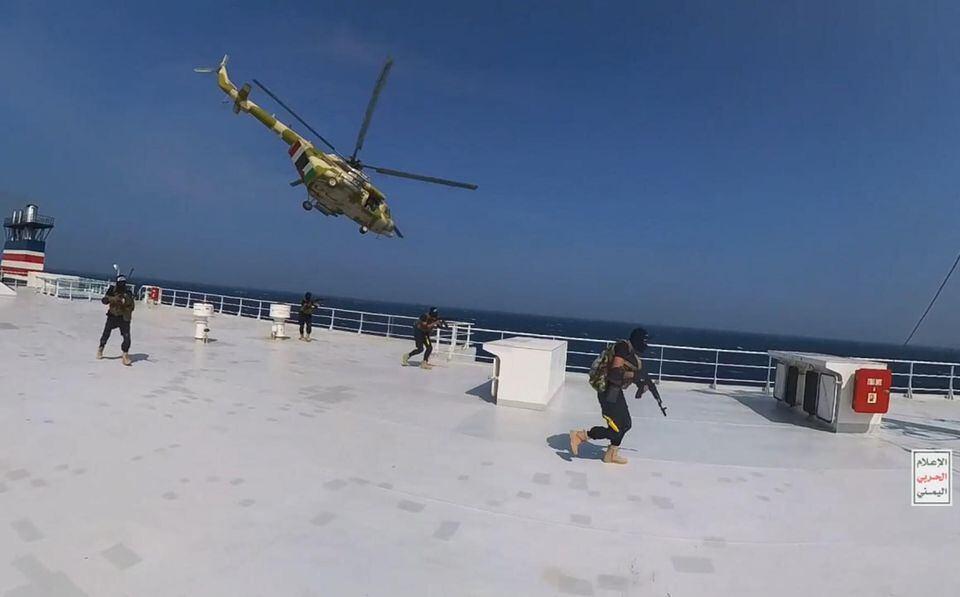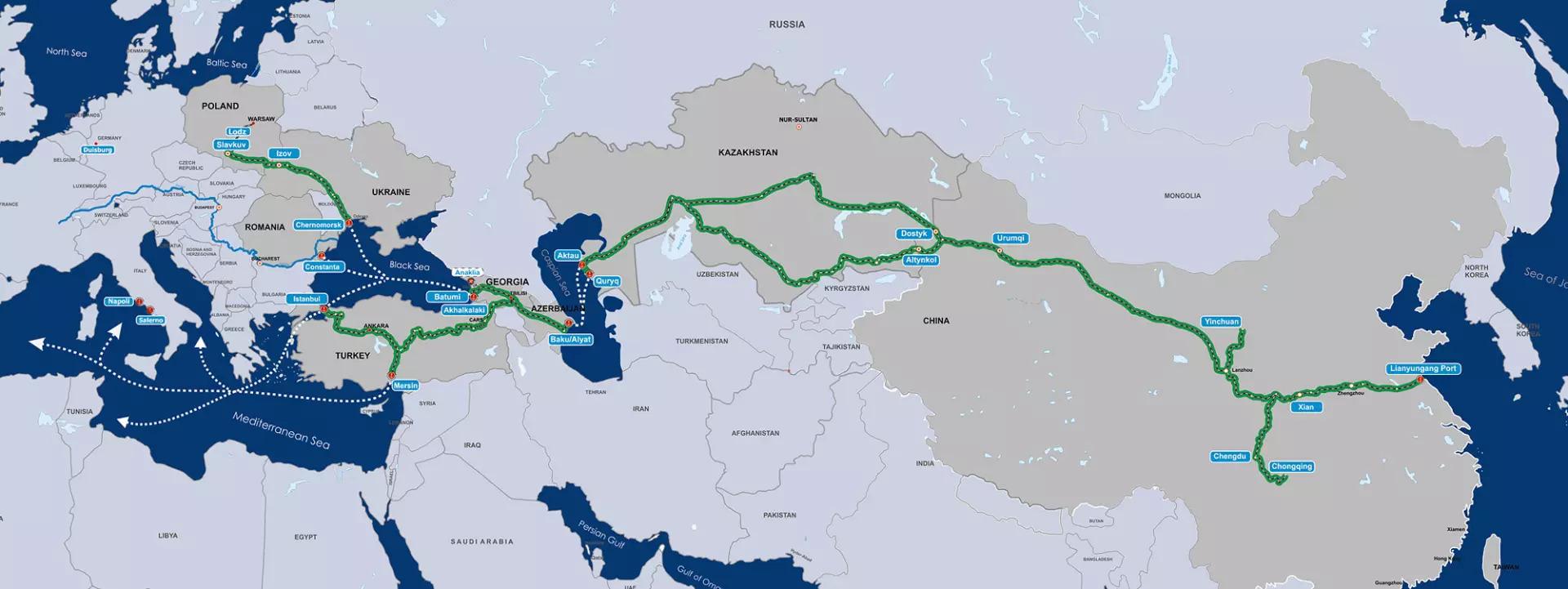Escalating Houthi attacks paralyze Red Sea maritime security Middle Corridor's Zangazur segment pivotal
The ongoing tensions surrounding the Red Sea persist, as Houthi insurgents intensify their assaults on a range of targets and this upsurge presents substantial hazards, not only threatening regional equilibrium but also posing a severe risk to global maritime security for years to come.
From late October 2023, an unparalleled rise in military confrontation has been witnessed in the Red Sea. The Houthi rebels from Yemen have initiated a sequence of drone and rocket assaults at Israel, targeting commercial and military ships in the vicinity as a retaliatory act to Israel's continuing war in Gaza. They persist in their offensive operations in the Red Sea, transforming this critical commercial pathway into another flashpoint for several parties with significant stakes in secure navigation.
The Houthi uprising, reportedly supported by Iran, has tactically focused on commercial ships, military outposts, and vital infrastructure along the Red Sea coastline, disrupting global trade routes and risking civilian lives. The recent offensives underscore the Houthi rebels' resolve to consolidate their hold over strategic water channels and apply pressure on regional rivals, principally Saudis and its allies.
The Yemen conflict has spilled over into the Red Sea, intensifying tensions and adding complexity to the pursuit of a peaceful settlement. The international community's reaction to the escalating situation has varied, with appeals for both diplomatic discussions and military action. Nevertheless, a sustainable resolution to the conflict involves addressing the underlying factors of the Yemeni crisis, which include political discontent, socio-economic inequality, and external influences.
Operation Prosperity Guardian
In December 2023, the US revealed the inception of Operation Prosperity Guardian, a global military alliance devised to shield the Red Sea from Houthi assaults. Since January 12, the US and the UK initiated aggressive operations against Houthi bases within Yemen. In retaliation to the escalating Houthi threat, a sequence of airstrikes was launched by the US and the UK specifically targeting Yemeni military facilities.

In a defiant response, the Houthi faction declared all US and British assets as valid targets. This proclamation ignited a wave of conjecture, hinting that the prospective targeting of these interests may not be limited to the Red Sea vicinity, but could potentially extend to the states along the gulf. Moreover, the attacks have sparked inquiries about the internal strategies of the Houthi faction. They have faced allegations both domestically and internationally, suggesting that their focus on targeting ships is a diversionary tactic from their obligations to the Yemenis.
It appears that the Houthis prioritize gaining the symbolic empathy of the Arab and Islamic world over striving for enduring peace in Yemen, ensuring the disbursement of public employee wages, and setting up a national government.
The strategic significance of the Red Sea has been acknowledged by the US since the 1973 October war. Hence, the recent Houthi assaults could provide a convenient guise for the US to militarize the Red Sea, establish control over the Bab al-Mandab Strait, and station a significant number of its forces in the area. This strategic maneuver could enlarge the US's sphere of influence while preserving Israel's security interests. Simultaneously, it could set up a fabricated adversary, mirroring its tactics in Afghanistan and Iraq.
Under this scenario, the Red Sea could rapidly evolve into a hotbed for global contention, particularly considering the eleven military bases situated in the Horn of Africa, owned by various rival nations. Hostilities could swiftly intensify into an international conflict, potentially leading to the imposition of fresh regulations on global navigation in the Red Sea region, a strategic priority for Washington.
Pledging their allegiance to ensure secure maritime travel in the water basin, except vessels headed for Israel, the Houthis have promised to safeguard Palestinians of the Gaza Strip, a region that has been persistently subjected to hostility since October 7, 2023. Furthermore, the Houthis have been launching missiles and unmanned aerial vehicles towards Israeli targets.
The Houthi forces initiated the capture of the freight vessel, Galaxy Leader, on November 19, concurrently instigating assaults on various Israeli vessels. Following this, on December 9, they instituted a ban on maritime traffic of all nationalities to and from Israeli harbors, except for those carrying humanitarian aid intended for the Gaza Strip.

Military strategists suggest that Washington intentionally amplified the effects of Houthi assaults on the Red Sea while advocating for the implementation of Security Council resolution 2722. They theorize that this mirrors both American and British interests in securing a foothold in the region of Bab al-Mandab. This could potentially mitigate China's influence and hinder its commerce via this pivotal strait. Concurrently, it could also serve to restrict Russia's regional prowess.
The Red Sea, a critical marine passage, has evolved into a hotbed for ongoing regional conflicts. Its importance spans economic, military, and security fronts, establishing it as one of the world's most indispensable international sea routes. Consequently, any discord could potentially spark a broader conflict, threatening global peace and security.
Economists argue that continuous disturbances in the region could lead to a decline in worldwide trade. The immediate repercussions might not be evident, but the cumulative impact could result in sustained operational instability for maritime shipping firms.
Iran’s involvement speculated
Speculations suggest that Iran is heavily involved in organizing, arming, and directing the Houthis. A puzzling factor, however, is the inability of top global intelligence agencies like the FBI, MI6, and Mossad, as well as the intelligence and counter-intelligence divisions of the Pentagon and NATO, to effectively neutralize the Houthis.
This has led some experts to posit that this scenario is a complex geopolitical game involving major global players. It raises the question: To what extent is this assertion valid? Are the US and its Western allies intentionally creating an environment conducive for the Houthis to expand their influence? Assaults by the Houthi rebels on commercial vessels have reverberated negatively in the financial sector, specifically impacting global stock markets and international trade. Such actions directly burden international logistics firms by escalating shipping costs. Notably, naval vessels of global superpowers are also not exempt from Houthi targeting.
Iran's significant involvement in these activities cannot be understated. The Houthis are viewed as Iran's surrogate forces, enabling Tehran to execute its expansionist policies within the Middle East. The lack of substantial response from world-renowned intelligence agencies such as the FBI, MI6, and Mossad suggests a more comprehensive Western strategy.
We all know well that the US has been contemplating military intervention in Iran for a considerable time, with preparations reportedly in progress. However, it is important to remember that Iran is not an ordinary nation. Boasting the region's second most powerful military after Turkey and being on the brink of attaining nuclear capabilities, Iran presents a formidable adversary. Furthermore, Iran's religious and ideological resilience adds to the complexity of engaging in conflict with the nation.
The Houthis’ attacks on vessels traversing the Red Sea have generated a worldwide dilemma. As a result, ships that are unable to navigate through the Suez Canal and the Red Sea are opting for a longer detour around Africa. This alternative route not only consumes more time but also incurs additional expenses.
High time for Zangazur Corridor to come on-stream
Consequently, there has been a noticeable increase in the global market prices and the tendency will go on, signaling instability for world markets.

At this moment, it is high time to look around for secure land routes and certain analysts propose that Baku should seize this opportunity to expedite the inauguration of the Zangazur corridor. One might ponder whether the growing difficulty of shipping in the Red Sea could potentially accelerate the opening of the Zangazur Corridor.
The Houthis' targeting of all vessels traversing the Red Sea amplifies the significance of the Zangazur corridor. The largest portion of global trade flows through this region. If Red Sea commerce came to a standstill, the Suez Canal would virtually become obsolete.
Predominantly, maritime trade flows from China to Europe or vice versa traverse this region. Given these circumstances, shifting trade from maritime to terrestrial routes becomes pertinent. Currently, the most direct and efficient route runs through Azerbaijan, specifically, the Zangazur Corridor.
Owing to the ongoing Russian-Ukrainian conflict, the northern routes are essentially inoperative. This factor underscores the necessity to inaugurate the alternative corridor viewed as the cheapest and shortest – the Zangazur Corridor – a middle segment of the Trans-Caspian International Transport Route that starts from Southeast Asia and China, runs through Kazakhstan, the Caspian Sea, Azerbaijan, Georgia and further to Europe.








